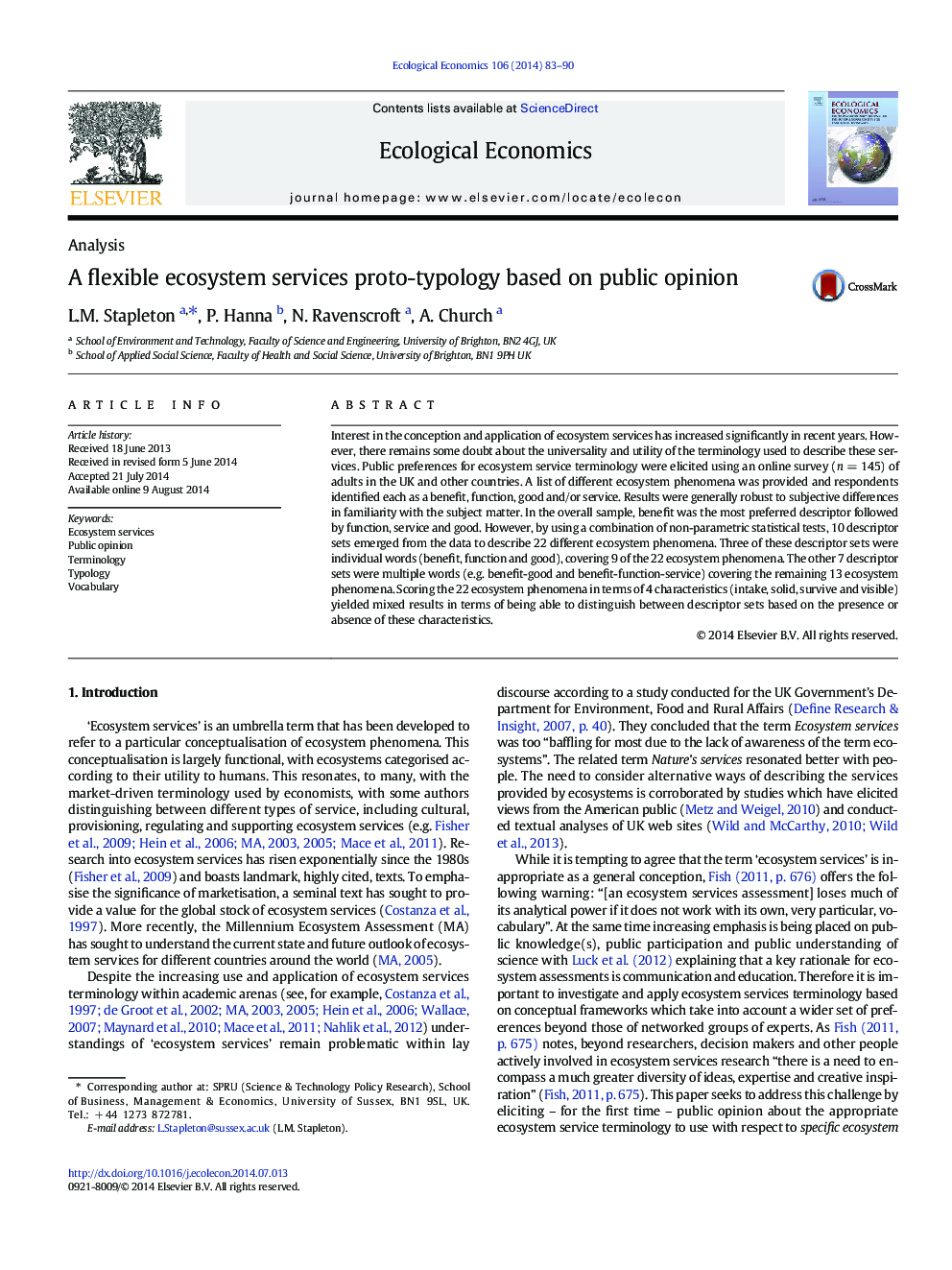| Article ID | Journal | Published Year | Pages | File Type |
|---|---|---|---|---|
| 5049643 | Ecological Economics | 2014 | 8 Pages |
â¢Members of the public are asked whether different ecosystem phenomena should be regarded as benefits, functions, goods and/or services.â¢Most ecosystem phenomena could be described using multiple descriptors if the opinions of different people are taken into account.â¢Results are generally robust to subjective familiarity with the subject matter.â¢An analysis is presented which attempts to reveal the explicit or tacit definitions of benefit, function, good and service applied by people.
Interest in the conception and application of ecosystem services has increased significantly in recent years. However, there remains some doubt about the universality and utility of the terminology used to describe these services. Public preferences for ecosystem service terminology were elicited using an online survey (n = 145) of adults in the UK and other countries. A list of different ecosystem phenomena was provided and respondents identified each as a benefit, function, good and/or service. Results were generally robust to subjective differences in familiarity with the subject matter. In the overall sample, benefit was the most preferred descriptor followed by function, service and good. However, by using a combination of non-parametric statistical tests, 10 descriptor sets emerged from the data to describe 22 different ecosystem phenomena. Three of these descriptor sets were individual words (benefit, function and good), covering 9 of the 22 ecosystem phenomena. The other 7 descriptor sets were multiple words (e.g. benefit-good and benefit-function-service) covering the remaining 13 ecosystem phenomena. Scoring the 22 ecosystem phenomena in terms of 4 characteristics (intake, solid, survive and visible) yielded mixed results in terms of being able to distinguish between descriptor sets based on the presence or absence of these characteristics.
